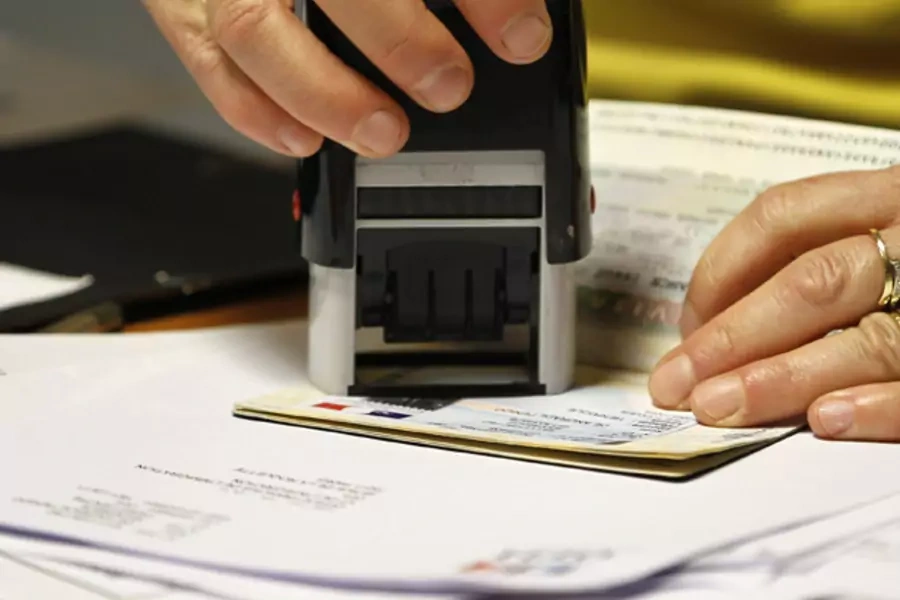Innovation In Government: A Safer and Speedier Visa System

The Council on Foreign Relations has published today the first Policy Innovation Memorandum (PIM) coming out of the Renewing America initiative, "Faster, Safer, and Smarter: A Modern Visa System for the United States." We will have several others ready to publish shortly, looking at issues such as Chinese foreign investment in the United States, foreign language education in U.S. schools, and ways to move forward on critically needed infrastructure programs.
The memo, co-written by myself and Liam Schwartz, one of the world’s leading consular attorneys, calls for reforms to U.S. visa procedures to ease travel to the United States, but in a way that does not increase security risks. The 9/11 terrorist attacks exposed serious weaknesses in the U.S. system for granting foreign visas, an issue I wrote about extensively in my book, The Closing of the American Border. In the aftermath of 9/11, the U.S. government implemented a range of measures to try to ensure that visas would not again be granted to terrorists. But many of those measures also resulted in long delays or arbitrary refusals for legitimate visa applicants, which kept consular lawyers like Liam extremely busy trying to help clients navigate the cumbersome procedures.
More on:
The visa statistics quite clearly show the consequences. Nonimmigrant visa approvals plummeted from a record 7.5 million in 2001 to fewer than 5 million in 2003, before beginning a slow recovery (the fiscal year ends September 30, so the effect of the attacks did not show until later years).
The costs have been high. The U.S. tourist industry says that 1.3 million jobs could be created, and $850 million added to the economy, if the U.S. share of foreign tourism could just be restored to its pre-9/11 levels. There is also considerable evidence that visa hassles have discouraged foreign investment in the United States, but making it difficult for business travelers to come here; the U.S. share of total inward investment has fallen by half over the decade.
The State Department and the Department of Homeland Security have worked hard in a variety of ways to address the delays, and the numbers demonstrate real progress. The government initially made a priority of timely visas for students, and has gradually been working on other aspects of the problem. Over the past several months, the administration has significantly reduced the long wait times for consular interviews in big countries like China and Brazil. President Obama’s announcement last week that the volume of visa processing is rising even as wait times are falling was possible only because of tremendous effort by State Department officials.
But maintaining that progress, we argue, is going to require more sophisticated use of technology. The delays associated with security background checks, in particular, have remained a chronic problem, especially from India. Screening technology has been developed by the government that can speed up background checks without compromising security, but it remains stuck in pilot phase. There are other technology improvements that will deter individuals from overstaying visas, and make it easier as well to assess the risk that an individual visa applicant will overstay. There is simply no need for the current congressional requirement that all new visa applicants must have face-to-face interviews with consular officers.
The paper, I like to think, reflects one of the great strengths of the Council on Foreign Relations. It is the product of several off-the-record meetings and numerous conversations among individuals, inside and outside government, with real expertise and experience on visa issues. I hope it will be a useful addition to the ongoing effort to create a visa system that is, as the title of the PIM suggests, “faster, safer and smarter.”
More on:
 Online Store
Online Store